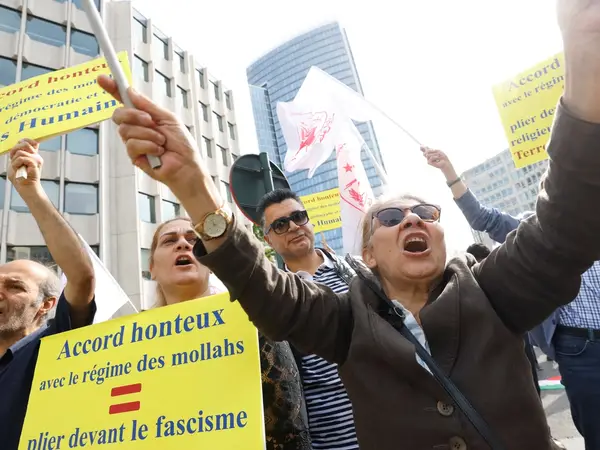The Belgian parliament’s foreign relations committee passed a controversial prisoner swap treaty with Iran, which will go to the full 150-member chamber July 14.
Belgium’s Justice Minister Vincent Van Quickenborne said on Wednesday the treaty between Iran and Belgium stipulating the exchange of convicts is an attempt to build trust between the two countries, adding that the assessment of the Belgian security service was that the failure to pass the bill would increase security threats.
“Contrary to what you [opposition representatives] say, this treaty will not open the door to hostage-taking and will not provide immunity for criminals,” he said.
Critics say that the agreement with Iran will result in sending back Assadollah Assadi, a convicted terrorist to Tehran and that can encourage the Islamic Republic in taking more Western hostages.
In response to questions about the possibility of an exchange to secure the release of a Belgian man jailed in Iran since February and Swedish-Iranian academic Ahmadreza Djalali, he noted that the Belgian national recently detained by the Islamic Republic has not been convicted yet, therefore the prisoner swap treaty would not apply to him, but Djalali has been sentenced to death and this treaty can help Brussels in that regard.
Van Quickenborne Tuesday confirmed Tuesday that Iran has been holding a Belgian man for the past four months under “espionage” charges, saying his detention is illegal.
On Monday, Iran International broke the news that Tehran has detained a Belgian aid worker, identified as Olivier Vandecasteele, another example of the often-used Iranian tactic of imprisoning foreigners as hostages to exchange them with certain Iranians jailed in Western countries.
But Iran arrested the 41-year-old aid worker just when it was negotiating the treaty in question and shows its lack of good will.
In the past years, 49 European citizens have been arrested in Iran. Eighteen of them are still in prison, including the Belgian citizens. Two of them have been killed: one has been executed and one died due to lack of medical access, Van Quickenborne claimed on Wednesday.
He said Belgium cannot submit to the request of a few American congresspeople while the United States negotiates and deals with Iran for the release and exchange of prisoners.
On Tuesday, 13 members of the US House of Representatives wrote to Prime Minister Alexander De Croo, urging Brussels to reject any deal with the Islamic Republic that would repatriate Assadi.
“We applaud the heroism and ingenuity of the Belgian government, first, in preventing a heinous tragedy, and subsequently, in holding to account the reprehensible perpetrators of this dastardly plot executed under the cover of diplomatic immunity -- as a testament to the rule of law and a commitment to ridding the world of the scourge of terrorism. Therefore, we implore you to uphold these precious principles and reject any cynical ploy by Iran’s current 'diplomats' to trade terrorists for dubiously detained Belgians,” their statement read.
The chairman of US Senate Foreign Relations Committee also tweeted on Tuesday that the Belgium-Iran treaty “must uphold Belgium’s international obligations and cannot grant impunity to Assadollah Assadi or any other actor responsible for human rights violations and heinous acts of terrorism.”
“Iran must be held to account for backing terrorism and taking hostages for leverage,” Senator Bob Menendez added.
Numerous people and groups from around the world have warned about the imminent perilous consequences of the prisoner exchange treaty, calling it “the green light to state terrorism” that only emboldens the Islamic Republic.
